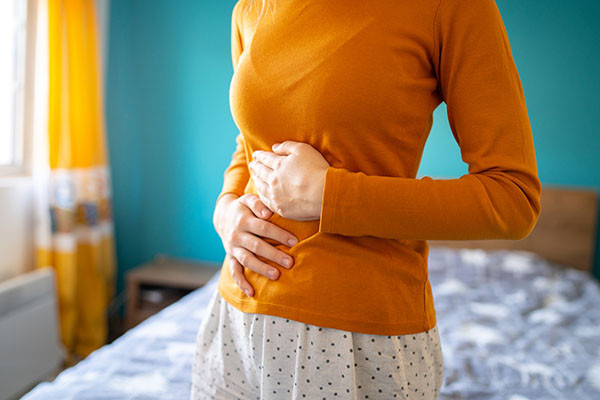9 GERD symptoms to know
- Reviewed by Lawrence S. Friedman, MD, Contributor; Editorial Advisory Board Member, Harvard Health Publishing

Gastroesophageal reflux disease (GERD) is a chronic medical condition that occurs when stomach acid backs up into the esophagus — the tube connecting the mouth and stomach. This usually happens because the ringlike muscles that prevent backflow don't work properly.
Common symptoms of GERD
Two of the most common symptoms of GERD are heartburn and regurgitation. Many people experience both symptoms. However, some people can experience one without the other.
Heartburn
Heartburn can feel like a sharp, painful burning in the upper abdomen or middle of the chest, behind the breastbone. This is the most common symptom of GERD, and can rise up from the lower tip of the breastbone toward your throat. Heartburn may be worse when you eat, bend over, or lie down.
Regurgitation
Regurgitation is the backflow of stomach contents through your esophagus and into your throat or mouth. This may cause you to taste food or stomach acid.
Other symptoms of GERD
While chronic heartburn and regurgitation are common symptoms of GERD, you may experience one or more less common symptoms of the disease. Not all adults with GERD experience heartburn or regurgitation.
Other symptoms of GERD may include:
- nausea
- difficulty swallowing (food sticks going down) or pain while swallowing (as food goes down)
- recurring sour or bitter taste in the mouth
- chronic cough
- hoarseness
- sore throat
- chest pain, or tightness in your chest or upper abdomen that may wake you up in the middle of the night.
What health conditions can be mistaken with GERD?
Pain that feels like heartburn also can be a symptom of a heart attack. In fact, the classic symptom of both heartburn and heart disease is discomfort in the center of the chest.
Of the over eight million emergency room visits for chest pain each year, severe heartburn (GERD) accounts for over half the cases in which actual heart problems are ruled out.
While heartburn is more likely to appear after a large or spicy meal, heart attacks are more common after physical exertion or stress. But if you're unsure, seek medical help right away.
When should I see a doctor about GERD?
You should see a doctor if you think you have GERD, or if your symptoms don't get better with over-the-counter medicines such as antacids or lifestyle changes. By seeing your doctor early, the physical cause of GERD can be treated, and more serious problems avoided.
Always see a doctor if you have symptoms that could indicate GERD complications or other serious health problems, such as:
- chest pain
- loss of appetite
- persistent vomiting
- problems swallowing or pain while swallowing
- signs of bleeding in the digestive tract, such as
- vomit that contains blood or looks like coffee grounds
- stool that contains blood or looks black and tarry
- unexplained weight loss.
If you think you may be having a heart attack, go to the emergency room.
Up to 20% of the US population has GERD. GERD is more common among older adults, obese persons, and pregnant women.
About the Author

Jenette Restivo, Health Writer; Assistant Director for Digital Content Creation and Engagement, Harvard Health Publishing
About the Reviewer

Lawrence S. Friedman, MD, Contributor; Editorial Advisory Board Member, Harvard Health Publishing
Disclaimer:
As a service to our readers, Harvard Health Publishing provides access to our library of archived content. Please note the date of last review or update on all articles.
No content on this site, regardless of date, should ever be used as a substitute for direct medical advice from your doctor or other qualified clinician.















